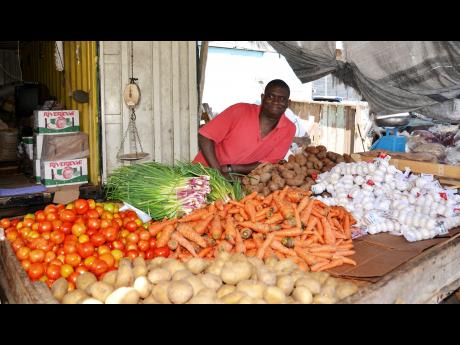Markets out west below WHO standard
One of the recurring concerns about municipal and rural agricultural retail markets in western Jamaica, especially in the townships of Lucea, Savanna-la-Mar and Falmouth, is the perennial complaints about their unsightly, if not unhealthy, conditions.
The condition of markets in developing countries, with similar economic circumstances to Jamaica, has not escaped the attention of the Food and Agriculture Organisation of the United Nations (FAO), which sees their upgrading as key to rural development.
In 2009, the Rural Infrastructure and Agro-Industries Division of the FAO published a working document titled, "A guide to upgrading rural agricultural retail markets," which provided practical guidelines for, and analysed the strategic potential of upgrading these markets as "an important component of rural development."
The document was based primarily on, among other things, field experiences in Ethiopia and countries in West Africa and Bangladesh. Some of the challenges highlighted are among those now faced by vendors in some markets in western Jamaica.
Inadequate cleaning
Market cleaning services are provided by the public sector and commonly are inadequate and insufficient," the document stated. "Water services often do not exist or suffer from serious management problems. Sanitary facilities are usually present, but they are overpopulated, expensive or do not work properly and consequently suffer from poor hygiene conditions."
The document further noted that retail market upgrading is essential for income generation activities, strengthening food security, developing rural market linkages and for mainstreaming gender issues within rural development strategies.
".... hence, upgrading projects should not only improve the infrastructure, but also need to consider the objectives of poverty alleviation and livelihood improvement in rural areas," the document added.
The document also noted that most market upgrading projects, which were only aimed at infrastructure upgrading and did not guarantee maintenance and management, failed within a few years. It recommended therefore, that market upgrading be approached as a social development project with stakeholder participation from the outset, which would include a gender-sensitive approach, in light of the fact that women are one of the most vulnerable groups, inside the marketplace.
"Women often work in the most run down areas of markets, where hygiene and sanitary conditions are neglected," the document outlined. "In most cases, market activities are a refuge for female merchants ... their small-scale market activities are part of the daily struggle to ensure their own survival and that of their children."
"Women often represent the majority of traders that have the cheapest products: they sell foodstuffs such as vegetables and other perishable products, (which have little added value), mainly because these require small cash investments," the document added.
As is the case with the markets in western Jamaica, the document stated that the vulnerability of women vendors has a direct effect on their household's livelihood and food security, as they often do not have storage facilities for their goods and have to carry products or pay for transportation back to their homes.
"In addition, they also do not have access to credit and therefore it is very difficult for them to improve their business activity and are usually uninformed or misinformed about their rights,' the document further stated.

